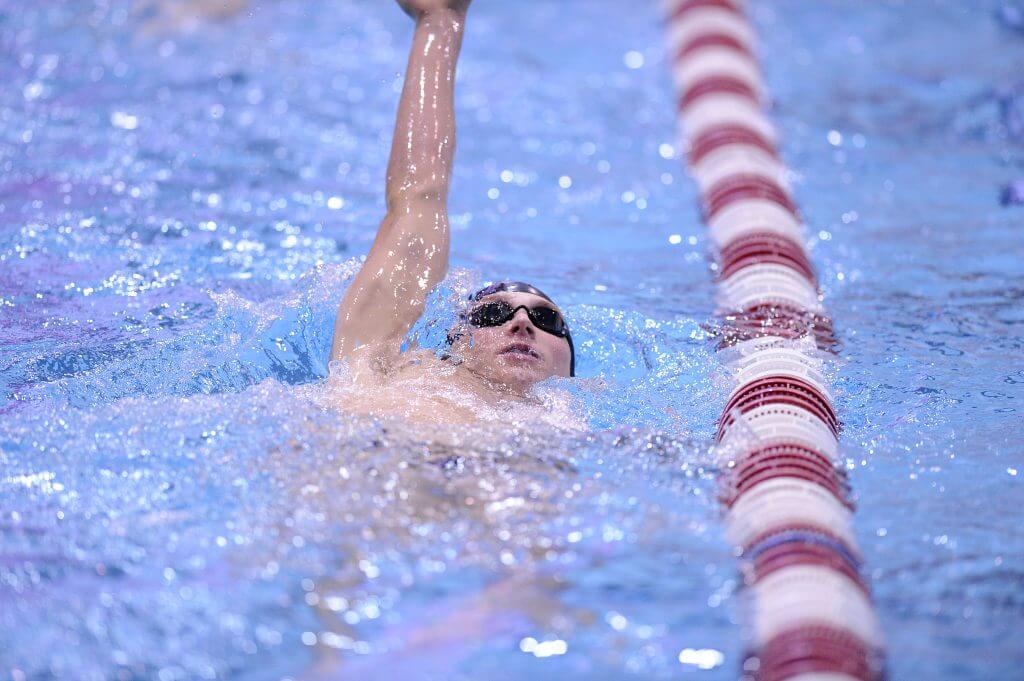Problems in Swim Practice: How to Deal with the Difficulties of Training

Problems in Swim Practice: How to Deal with the Difficulties of Training
By Hunter Kroll, Swimming World College Intern
We have all had those days, weeks, or even entire training cycles, where nothing is going right. In spite of all our efforts, we just cannot swim fast. Repeat after repeat, set after set, practice after practice, these struggles continue. Not training as fast as you should be is one of the most frustrating experiences as a swimmer. You start to question your own ability and desire to swim, and this only makes the situation worse. It gets you stuck in a cycle of poor performance and negativity. But how can we break this cycle?
Take a Step Back
The most important thing we can do after a bad practice is not to let it affect us for too long. It is easy to bring home frustration or anger from a tough practice, but continuing to hold those feelings can get us into a poor mental headspace. The more time we spend frustrated or angry, the more natural it is to feel that way, and it can carry over to the point that we are in a negative headspace before we even jump into the pool the next day.
Leaving our practices, good or bad, at the pool is the best way to maintain a separation between swimming and the rest of our lives. After a bad practice, the best thing we can do is leave it in the past. This can mean relaxing, doing homework, or playing video games, but anything that takes your mind off of swimming is good to do after practice.
Change Your Focus
In practice, when we become aware that we are struggling, typical responses are to give up or talk down to ourselves for our performance. Neither is productive. Negative self-talk only tears us down, and makes it more difficult to come back the next day. Instead, we should try to remain present at the pool and try to get something out of that practice.
One thing that we can do is to focus on one thing that we can do well. For example, if you struggle with turns, maybe you would focus on just having great turns for the set. This way, you are able to take your mind off the result, while still improving yourself. Also, sometimes by doing one thing well, the effect can start to snowball, allowing you to get faster as practice goes on.
But what if nothing is going right? In this case, we need to reframe the way we are thinking, and one way to do this is through affirmations. Affirmations are statements like “I am the hardest worker in the pool” or “I finish strong,” that remind us of our strengths. By saying these things to ourselves, we can keep ourselves from overthinking, and just focus on the process of swimming.
Get Help
These other tips do not mean that distractions will fix everything. Sometimes, we need to tackle our problems head on. Bad practices can be caused by issues that we just cannot see or do not know how to fix independently. Maybe your stroke is feeling off, or you have not been able to recover from the last practice. In these cases, you may need to go to your support system for help.
Your coach is always a great resource. Coaches often feel underutilized on deck when they are just giving out sets and watching people swim, so they are typically more than happy to take a look at your stroke if something is feeling off. Also, it is good to keep your coaches in the loop with how you are feeling. They may have some advice for ways that you can recover, or they may be able to use your input as feedback for their practices. Your coaches are there to help you, and they will usually be understanding of any struggles you are having.
If you are looking for help with things like motivation or performance anxiety, a sports psychologist is another great option. Sports psychologists work to strengthen athletes on the mental side, which is a skill that can be extended beyond the pool. They will give you techniques to either relax you or amp you up, depending on what you need to get into your best possible state of mind.
Remember Your Why
On a deeper level, how can we deal with these rough patches? For all the great memories swimming provides us with, training can make it difficult to keep pushing forward. The middles of training cycles are the times when many of us feel like we are swimming aimlessly. Times like these require us to reconsider why we swim. The fact is that we do not just swim to go fast times at the end of the season. There is more to it than that. So, when we are struggling with practice, it is important to remind ourselves of our purpose in swimming. When we have a greater purpose for why we are doing what we are doing, it becomes easier to get through adversity.
All commentaries are the opinion of the author and do not necessarily reflect the views of Swimming World Magazine nor its staff.



